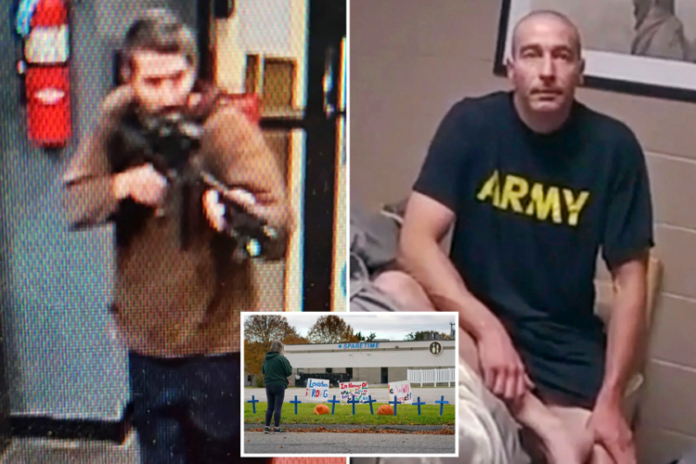Last October, a tragic incident shook Lewiston, Maine, when 40-year-old Robert Card, a US Army reservist and certified firearms instructor, perpetrated a shooting that claimed the lives of 18 people. The devastating event culminated in Card’s death from a self-inflicted gunshot several days later. While Army records indicated that Card had not undergone combat deployments, medical experts have suggested that he may have been afflicted by traumatic brain injuries, possibly sustained during military drills. The Maine Shooter had a lot more going for him, some of which we will discuss here.
The Coroner Found Brain Damage
Following the tragic events of October 25th, the Maine Chief Medical Examiner’s office initiated a post-mortem examination of Card’s brain. Before the deadliest mass shooting in Maine’s history, there were indications that Card was grappling with psychological challenges. Just three months before the devastating incident at a bowling alley and restaurant in Lewiston, Card found himself in a hospital and was mandated to undergo psychiatric evaluation. Also, this is not the first time a mentally ill person has opened fire in a crowd. It happens almost every other year owing to loose gun control.
Authorities Were Slow to React
Before committing Maine’s deadliest mass shooting, Army reservist Robert Card should have had his guns confiscated. He should have been placed in protective custody, according to a report released on Friday by an independent commission. The report scrutinized the events leading up to the tragic incident on October 25th. Where Card killed 18 people at a bowling alley and a bar in Lewiston, as well as the subsequent response. The commission particularly criticized Sgt. Aaron Skolfield for his handling of a report made five weeks before the shooting, which indicated that Card was experiencing a mental health crisis following a previous assault on A friend who threatened to shoot at the Saco Armory.
The Sheriff’s Office Had the Reasons
The commission determined that Skolfield, from the Sagadahoc County Sheriff’s Office, should have recognized enough evidence to initiate a “yellow flag” process. Also, this process enables a judge to temporarily take away someone’s guns during a mental health crisis. Leroy Walker, whose son Joseph was a victim of the shootings, agreed with the commission’s findings. He stated that the realization that the yellow flag law could have been used but wasn’t aligned with what families of the victims have believed from the start.
Statement from the Attorney’s Office
Attorney Ben Gideon, speaking for the victims, mentioned feeling that the report mostly concentrated on the actions of the sheriff’s office. He noted that the broader issue of preventing potentially dangerous individuals from accessing guns in the state seemed overlooked. Elizabeth Seal, wife of a victim, also shared her sentiments. She feels the report’s focus was too narrow. Gideon also expressed hope that the shooter’s health records would be made available to victims and the public, but the report did not address this. Also, they should have taken greater care.
There Were Warnings About Card
Before the shootings, authorities did raise some concerns about Card’s behavior and mental state. His family and fellow service members had alerted law enforcement about his worsening mental health and potential for violence. In May, relatives informed police about Card’s growing paranoia and their worries about his access to firearms. In July, law enforcement did admit Card to a psychiatric unit for two weeks after a confrontation with a fellow reservist and locking himself in a motel room. By August, the Army restricted his access to weapons while on duty and classified him as nondeployable.
Aftermath for Victims
Rachael Sloat, engaged to Peton Berwer Ross, a victim of the shooting, told the committee that her heart breaks whenever their 2-year-old daughter asks for her daddy. She pleaded, “Where are you?” urging politicians, law enforcement, and every voter to listen. She emphasised, “Where are you?” expressing a sense of collective failure.
Conclusion
In conclusion, the tragic events surrounding the Lewiston mass shooting underscore the importance of proactive measures in addressing mental health crises and gun safety. The findings of the independent commission shed light on missed opportunities. And systemic shortcomings that could have prevented such a devastating loss of life. Moving forward, policymakers, law enforcement, and communities must work collaboratively. To implement effective interventions, support mechanisms, and legislative measures to prevent similar tragedies in the future.
For More Topics, Visit-: Sakak
